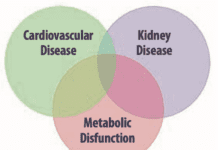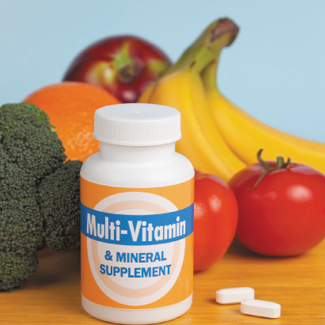Q: Should I take my vitamin and mineral supplements with or without food?
A: Judith C. Thalheimer, RD, LDN, managing editor of Tufts Health & Nutrition
Letter, answers: “If you’ve been told by a healthcare professional that you are in need of a dietary supplement, there are some things you can do to maximize absorption.
“Vitamins A, D, E, and K are fat soluble. This means they dissolve in fat, not water. These vitamins should be taken with a meal that contains some fat (preferably the healthy unsaturated fats found primarily in plant oils and plant foods like nuts and seeds). All other vitamins (the eight B vitamins and vitamin C) are water soluble and may be best absorbed when taken on an empty stomach with a glass of water (although with a meal is fine).
“Calcium supplements come in two forms: calcium carbonate and calcium citrate. Calcium carbonate requires stomach acid to be properly absorbed, so it is best taken with a meal since the presence of food in the stomach stimulates acid production. Calcium citrate can be taken with or without food and is often recommended for people who take antacids because it does not require stomach acid for absorption. Vitamin D is necessary for calcium absorption. If you aren’t getting enough vitamin D from sunlight or your diet, you may want to choose a calcium supplement that contains vitamin D. Keep in mind that only around 500 milligrams of calcium can be absorbed at a time, so don’t bother taking a supplement with more. In some cases, more may be harmful.
“Iron is best absorbed when taken on an empty stomach but it can be taken with or after a meal if it upsets your stomach. Over-the-counter supplements contain iron in the form of either ferrous salts or ferric salts. Ferrous salts are better absorbed. Vitamin C enhances absorption of iron, so taking an iron supplement formulated with vitamin C or taking your iron pill with a glass of orange or grapefruit juice may help absorption.
“Multi-vitamin and mineral supplements contain nutrients with different requirements for ideal absorption. If you follow a generally healthy overall dietary pattern, this type of dietary supplement is unnecessary. If you do take a multinutrient preparation, it is fine to take it with a meal.”
























